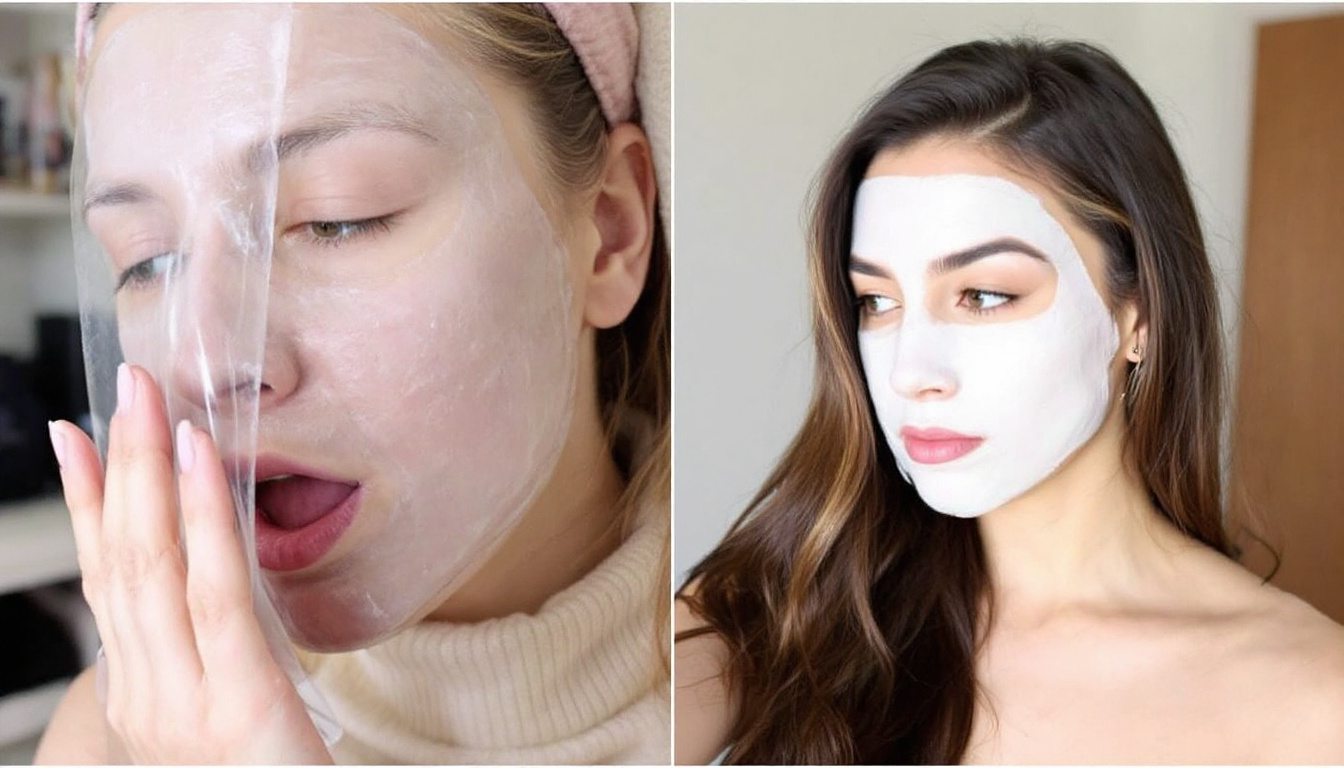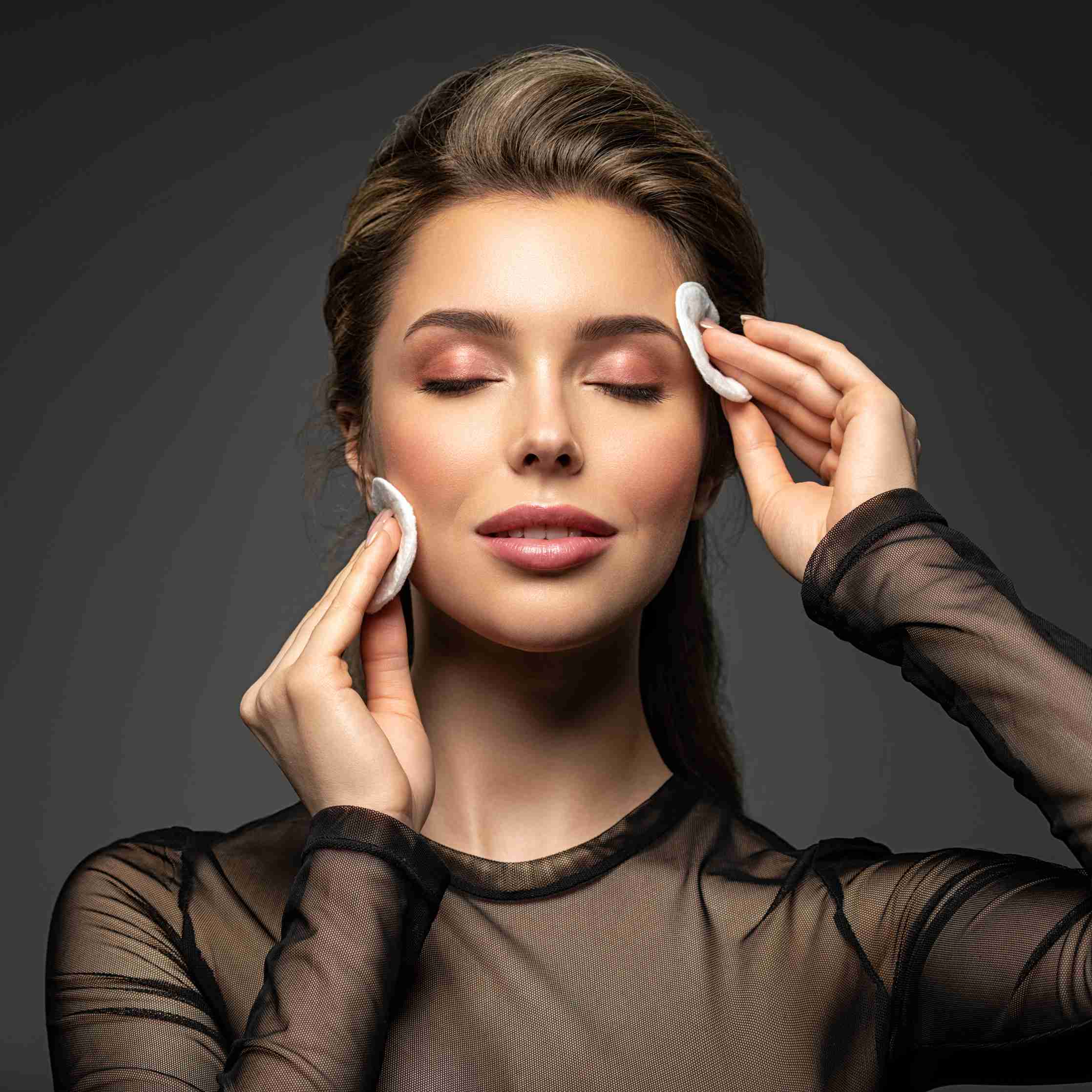When it comes to skincare, masks have taken center stage, but choosing between face masks and sheet masks isn’t always clear-cut. Both promise glowing, hydrated skin, yet they work in different ways and serve unique purposes. This post will break down what your skin actually needs, helping you decide which option fits your goals. Whether you’re after deep-cleansing or a quick moisture boost, we’ll help you make the right choice for your routine.
Understanding Face Masks
Face masks have earned their reputation as a skincare essential. Designed to target specific skin concerns, they offer concentrated benefits that can enhance your regular routine. Whether you’re dealing with clogged pores, dehydration, or dullness, face masks come in a range of formulations to meet your needs. From creamy textures to mud-like consistencies, they’ve become a go-to for both indulgence and practicality.
What Are Face Masks?
Face masks are skincare treatments designed to deliver powerful ingredients directly to the skin. Unlike daily cleansers or moisturizers, masks are meant to sit on your face for a set amount of time, allowing active ingredients to penetrate deeply. These products come in a variety of forms to suit different skin concerns:
- Cream Masks: Thick, buttery formulas that usually focus on delivering hydration or nourishment. They’re perfect for dry or flaky skin needing an extra moisture boost.
- Gel Masks: Lightweight, cooling options that often provide hydration or calming relief for irritated skin. These are great for sensitive or combination skin types.
- Clay Masks: These use natural clays like kaolin or bentonite to draw out impurities and control oil. They’re a popular choice for those with oily or acne-prone skin.
Each type is designed to do one thing particularly well, whether that’s hydrating, brightening, or detoxing. The fun part is finding the perfect match for your specific goals.
Key Benefits of Face Masks
The right mask can be like a mini spa day for your face—but the benefits go beyond relaxation. Here’s what using a face mask can really do for your skin:
- Deeper Cleansing: Regular cleansers can only go so far. Clay masks, for instance, can help extract oil and grime from deep within the pores, leaving skin feeling thoroughly clean.
- Detoxification: Pollution and toxins build up in your skin over time. Masks with activated charcoal or detoxifying clays can remove impurities and leave your complexion more balanced.
- Intense Hydration: For dry or dehydrated skin, cream and gel masks often include powerful moisturizers like hyaluronic acid to lock in water and improve skin texture.
- Improved Texture and Tone: Masks with ingredients like vitamin C or exfoliating acids can smooth rough patches and promote a brighter, more even complexion.
For example, someone with acne-prone skin might see a noticeable reduction in breakouts after incorporating a clay mask into their weekly routine. On the other hand, if your skin often feels tight or flaky, a hydrating mask could restore that plump, healthy glow.
Types of Skin Ideal for Face Masks
Face masks might be a universal indulgence, but not every type works for every skin. Knowing your skin type can help you choose a mask that delivers maximum benefits without causing irritation.
- Oily or Acne-Prone Skin: Clay or charcoal masks are your best bet. These help absorb excess oil, unclog pores, and soothe inflammation.
- Dry or Dehydrated Skin: Cream or gel masks rich in moisture-retaining ingredients work best. Look for options with hyaluronic acid, ceramides, or shea butter.
- Sensitive Skin: Gentle gel masks with calming ingredients like aloe vera or chamomile can bring relief without overwhelming delicate skin.
- Combination Skin: Multi-masking is your friend. Apply a clay mask to the oily T-zone while hydrating masks handle drier areas like the cheeks and jawline.
No matter your skin type, there’s a mask crafted to meet your needs. Choosing the right one is key to ensuring your face feels refreshed, balanced, and cared for.
All About Sheet Masks
If you’ve scrolled through skincare sections or watched influencers on social media, chances are you’ve seen sheet masks in action. These serum-drenched sheets have taken the beauty world by storm for being convenient, effective, and, let’s face it, fun to use. But what exactly makes them so popular, and could they be the skincare hero your routine is missing?
What Are Sheet Masks?
Sheet masks are thin fabric or hydrogel sheets cut to fit your face, saturated in a concentrated serum packed with active ingredients. These masks come individually wrapped and are designed for single use, making them a mess-free option for those on the go.
The fabric itself acts as a barrier, locking the serum close to your skin to enhance absorption. Sheet masks are typically infused with ingredients tailored to specific skin needs, such as:
- Hyaluronic Acid: Perfect for boosting hydration and plumping up dry or tired skin.
- Vitamin C: Known for its brightening properties, this is great for dull or uneven skin tones.
- Green Tea Extract: A favorite for calming sensitive or irritated skin.
- Peptides and Collagen: Ideal for aging skin, helping to improve elasticity and firmness.
The application process is simple: just unfold the sheet, place it over your face, and let the serum work its magic for 15–20 minutes. Once done, you can gently pat in the leftover serum—no rinsing required. It’s skincare made irresistibly easy.
The Benefits of Sheet Masks
Sheet masks aren’t just trendy; they deliver major skincare perks in a matter of minutes. So, what makes them worth adding to your beauty arsenal?
- Instant Hydration: Many sheet masks are designed to provide an intense moisture boost, making them perfect for dry or dehydrated skin. The serum penetrates deeply, leaving skin plumped and refreshed.
- Convenience: Unlike traditional face masks that need to be applied, spread, and sometimes rinsed, sheet masks are pre-soaked and ready to use. No sink or clean-up required!
- Brightening Effects: Certain formulas are enriched with ingredients like niacinamide or Vitamin C, which can enhance radiance and even skin tone after just one session.
- Soothing Stressed Skin: If sensitive skin is your challenge, masks infused with calming agents like aloe vera or chamomile can provide relief from redness and irritation.
The beauty of sheet masks lies in their ability to cater to specific skin concerns in a targeted, efficient way. Whether you’re prepping for a special event or your skin is crying out for help after a long, stressful week, there’s a mask for almost every need.
Best Skin Types for Sheet Masks
Wondering if sheet masks are right for you? While they’re a versatile product that works well for most skin types, some individuals benefit more than others based on their unique skin concerns.
- Dry Skin: This is where sheet masks shine the brightest. Their serum-based formula delivers moisture on a deeper level, which can help alleviate tightness and flakiness. Look for masks with hyaluronic acid or ceramides for the ultimate hydration boost.
- Sensitive Skin: Because sheet masks are often packed with calming and anti-inflammatory ingredients, they’re a gentle option for sensitive or reactive skin. Gel-based masks, in particular, work well to soothe and cool.
- Combination Skin: If parts of your face feel dry while others lean more oily, sheet masks offer a balanced approach. Hydrating masks can rejuvenate drier areas, while lighter, calming options can take care of oil-prone zones.
- Dull or Uneven Skin: Need a glow-up? Sheet masks with brightening ingredients like Vitamin C or pearl extract can help transform a tired complexion into one that glows.
That said, not every sheet mask will work for every situation. Pay attention to the ingredients list and opt for masks that address your specific needs. A little trial and error can help you find “the one” that leaves your skin feeling fresh and fabulous.
Face Masks vs. Sheet Masks: Key Differences
Choosing between face masks and sheet masks often comes down to your skin concerns, lifestyle, and even personal preferences. They may both belong to the same skincare family, but their application, benefits, and even environmental impact differ significantly. Let’s break it down so you can pick the one that best suits your routine.
Application and Usage
When it comes to how each mask fits into your skincare routine, the differences couldn’t be more noticeable.
Face Masks usually require a bit more effort. These products are applied directly to the skin, often using your fingers or a brush, and then left on for a set duration—typically 10 to 20 minutes. Depending on the formula, they may need to be rinsed off, wiped away, or massaged into the skin. Most dermatologists and skincare experts recommend using them one to two times a week, giving your skin a chance to reap the benefits of their concentrated ingredients without overloading it. However, the cleanup involved can feel less convenient, especially on busy days.
Sheet Masks, on the other hand, are all about convenience and minimal effort. You simply unfold the pre-soaked sheet, position it over your face (it’s cut to match facial contours), and let it sit for about 15 to 20 minutes. Once removed, there’s no rinsing required—just pat any leftover serum into your skin and you’re good to go. They’re perfect for those moments when your skin needs a pick-me-up but you don’t have the time or energy for a full skincare process. Because they tend to be gentler, sheet masks can be used more frequently, even daily, if your skin tolerates it well.
In short, face masks are better for more intensive treatments and relaxation days, while sheet masks cater to a quick fix with minimal fuss.
Effectiveness for Different Skin Concerns
Both types of masks can tackle various skin concerns, but their methods and outcomes differ. Let’s explore which mask is more effective for specific issues.
- Acne and Congested Skin: If breakouts and clogged pores are your main concerns, face masks hold the upper hand. Clay and charcoal-based face masks are particularly effective at drawing out impurities, absorbing excess oil, and minimizing the appearance of pores. These masks often include active ingredients like salicylic acid or sulfur, which are fantastic at targeting acne.
- Dryness and Dehydration: Sheet masks shine in the hydration department. Saturated with serums containing hyaluronic acid, glycerin, or natural plant extracts, they help your skin retain moisture and provide a plumping effect. If your skin feels dry, tight, or flaky, a sheet mask can help deliver long-lasting hydration.
- Sensitive or Irritated Skin: If you have skin that’s prone to redness or irritation, both options can work, depending on the formulation. Sheet masks with soothing ingredients like aloe vera, green tea, or chamomile are especially calming for sensitive skin. That said, gel-based face masks can deliver similar benefits while avoiding the artificial fragrances often found in sheet masks.
- Brightening and Anti-Aging: Face masks and sheet masks both offer brightening and anti-aging benefits, but they go about it differently. Face masks with exfoliating ingredients like glycolic acid or vitamin C can brighten your skin and improve texture over time. Sheet masks enriched with peptides or collagen provide a temporary firming and glowing effect, making them ideal for pre-event prep.
In general, face masks are better for deep-cleaning and long-term results, while sheet masks are great for hydration and instant gratification.
Cost and Environmental Impact
Now let’s tackle the practical factors: price and eco-friendliness.
When it comes to cost, face masks can initially seem more expensive because they come in larger containers or packages. However, a single jar or tube offers multiple uses, often lasting months depending on frequency. This makes them a cost-effective option for those looking to stretch their skincare budget.
Sheet masks, on the other hand, are single-use products. Individual masks are relatively affordable, but if you use them frequently, the cost can add up quickly. Plus, while sheet masks are great for a treat-yourself moment, they can’t match the long-term value of a multi-use face mask.
Then there’s the environmental impact. Sheet masks, especially those made from synthetic materials, aren’t the most eco-friendly choice. Their single-use nature means they generate more waste—from the mask itself to the individual packaging it comes in. Many sheets are non-biodegradable, which raises concerns about sustainability. Some companies are stepping up by making sheet masks with compostable fabrics and recyclable packaging, but these aren’t always easy to find or afford. In contrast, face masks produce less waste over time since there’s minimal packaging involved with each use.
If you’re trying to be more sustainable, reusable face masks may be the better option. For an environmentally conscious approach, consider checking whether the sheet masks you buy are labeled biodegradable or eco-friendly.
How to Choose the Best Mask for Your Skin
Selecting the right mask for your skin isn’t about jumping on the latest trend—it’s about understanding your skin’s unique needs. With so many options on the market, from purifying clays to serum-soaked sheets, finding the perfect fit can feel overwhelming. Let’s break it down step by step so you can choose like a skincare pro.
Identify Your Skin Type and Concerns
Before picking your mask, it’s essential to get clear on your skin type and any specific concerns. Why? Because not every product is created equal, and masks are no exception.
Start by asking yourself: Is my skin oily, dry, sensitive, or a mix of everything? Next, think about what you’re hoping to solve with a mask. Are you battling dehydration? Trying to control oil? Or simply searching for a glow-up after a sleepless week?
Here’s a cheat sheet to match skin concerns to mask types:
- Oily or Acne-Prone Skin: Look for clay or charcoal masks that absorb excess oil and unclog pores. These can help prevent breakouts and reduce shine.
- Dry or Dehydrated Skin: Hydrating cream masks or sheet masks with hyaluronic acid or aloe vera are your best friends. They’ll provide moisture and help restore a smooth texture.
- Sensitive or Irritated Skin: Go for something soothing. Gel masks with ingredients like chamomile or calendula, or sheet masks packed with calming serums, can reduce redness and irritation.
- Dull or Tired-Looking Skin: Masks with brightening vitamin C, niacinamide, or exfoliating acids like lactic or glycolic acid can rejuvenate your complexion.
When you know your skin’s baseline needs, you’ll save time and money by only picking products that work.
Occasional vs. Regular Use
Not all masks are designed to be used the same way. Some are perfect for those moments when your skin needs immediate attention, while others shine when built into your long-term routine.
- Occasional Use: Clay masks or exfoliating peel masks fall into this category. These are better for specific situations, like prepping for an event or managing a breakout. Overusing them can often backfire—your skin might feel tight or over-exfoliated. Stick to once or twice a week at most.
- Regular Maintenance: Hydrating sheet masks or gentle cream masks can be used more frequently, even daily, if your skin tolerates them. They’re perfect for keeping your skin well-moisturized and balanced over time.
Think about your own lifestyle, too. If you’re someone who struggles to find time for self-care, sheet masks might be easier to incorporate, thanks to their convenience. But for a deep, spa-like experience, face masks that need rinsing are hard to beat.
Key Ingredients to Look For
The right mask isn’t just about choosing the format—it’s all about the formula. Different masks feature different active ingredients, and each one serves a specific purpose. Here are some of the most popular ingredients found in masks and their potential benefits:
- Hyaluronic Acid: A standout in many sheet masks, it’s ideal for delivering deep hydration and plumping the skin.
- Charcoal and Clay: Found in traditional face masks, both work wonders for absorbing oil, minimizing pores, and detoxifying the skin.
- Vitamin C: Present in both face masks and sheet masks, this antioxidant brightens your skin and evens out tone.
- Niacinamide: Known for reducing redness, tightening pores, and balancing your skin’s oil production.
- Peptides and Collagen: Common in sheet masks targeting anti-aging concerns, these help with skin elasticity and firming.
- Aloe Vera: Soothes irritation and provides hydration, making it perfect for sensitive or sunburned skin.
- Exfoliating Acids (e.g., Glycolic, Lactic): Found in face masks rather than sheet masks, these ingredients help remove dead skin cells for a smoother texture.
When reading a product label, prioritize ingredients that match your skin goals. Need hydration? Stick to hyaluronic acid or ceramides. Want to detoxify? Charcoal or tea tree ingredients will do the trick.
By understanding your skin and what it needs, you’ll be equipped to choose the best mask for every situation. Customize your approach, and your skin will thank you with that sought-after healthy glow.
Expert and Dermatologist Opinions
When it comes to deciding between face masks and sheet masks, you’ve probably heard a wide range of advice—some backed by science, and some, well, not so much. To clear things up, we’re turning to professional insights from dermatologists and skincare experts who provide clarity on these popular products.
Common Misconceptions
There’s no shortage of myths about face masks and sheet masks, and believing them could mean missing out on the right solution for your skin. Let’s separate fact from fiction:
- “Sheet masks are more effective because they feel luxurious.”
While sheet masks may leave your skin feeling soft and supple thanks to their serum-soaked material, their benefits are often surface-level and more short-term. Dermatologists often note that while hydrating sheet masks create a temporary glow, many do not address underlying skin concerns, like clogged pores or long-term hydration. On the other hand, face masks, especially clay or exfoliating formulas, offer deeper penetration and longer-lasting results when it comes to issues like acne, dullness, or dehydration. Feeling luxurious doesn’t always equal superior results! - “Face masks are outdated.”
Some believe that face masks have been overshadowed by newer skincare trends like sheet masks. Truth is, face masks remain highly effective, and dermatologists still recommend them for targeted treatments. Clay masks, for example, remain unmatched in their ability to pull out impurities from deep within the pores. Unlike sheet masks, which tend to provide only hydration, face masks offer a broader range of options for specific skin concerns. - “More frequent use of sheet masks equals better skin.”
It’s easy to think that the more you mask, the healthier your skin becomes, but overdoing it—particularly with sheet masks—can disrupt your skin barrier. Experts warn against slathering on serums every single day unless your mask’s ingredients are mild and designed for frequent use. For instance, using a hydrating sheet mask daily may be fine, but a sheet mask with active ingredients like Vitamin C or acids can lead to irritation if used too often. Balance is key.
Professional Recommendations
To get a clearer picture of when and how to use face masks versus sheet masks, dermatologists weigh in with expert advice:
- Dr. Ellen Marmur, a board-certified dermatologist, explains: “Think of your skincare routine like a wardrobe. Sheet masks are like accessories—great when you want to look fresh for a specific occasion. Face masks, on the other hand, are like closet staples. They’re the workhorses for maintaining consistent skin health over time.” Dr. Marmur often recommends face masks containing clay or salicylic acid for clients with oily or acne-prone skin and suggests sheet masks for an added glow on special occasions.
- Dr. Whitney Bowe, a skincare expert, stresses the importance of tailoring your choice to your skin’s needs: “If you’re feeling dry or need a quick boost, sheet masks are a good option. But if you’re dealing with clogged pores or want a deeper treatment, a well-formulated face mask is your best bet.” Dr. Bowe adds that using both types of masks together at different times in your routine can create a balanced approach. For instance, you might detox with a clay mask earlier in the week and follow up with a hydrating sheet mask over the weekend to replenish moisture.
- Michelle Wong, a cosmetic chemist and skincare specialist, highlights application differences: “The biggest advantage of sheet masks lies in their delivery system. They prevent the serum from evaporating too quickly, which is great for hydration. But the formulation of a face mask allows specific active ingredients, like AHA or charcoal, to work more effectively for long-term results.” Wong suggests alternating masks depending on your skin goals instead of sticking exclusively to one type.
Quick Tips from Experts
- For oil control: Use a clay-based face mask weekly.
- For a moisture surge: Try a sheet mask infused with hyaluronic acid once or twice a week.
- For calming irritated skin: Apply a gel face mask or a sheet mask with soothing ingredients like aloe.
- For brightening: Opt for masks with Vitamin C or niacinamide but limit use to 1-2 times weekly to avoid overdoing it.
The consensus? Both mask types can be valuable tools, but the secret lies in personalizing your choice based on your skin’s needs. Derms agree that understanding what each product does—and giving your skin time to recover—leads to the best results.
Face masks and sheet masks both have their place in skincare, but the right choice depends on your unique skin needs and lifestyle. Face masks are ideal for targeting specific concerns like acne or dullness with powerful, long-lasting treatments. Sheet masks, on the other hand, offer quick hydration and convenience, making them perfect for an instant pick-me-up.
When deciding, focus on what your skin truly craves. Is it a deep cleanse, a hydration boost, or a soothing moment? Experiment with both to see what works best over time. Remember, skincare isn’t one-size-fits-all—it’s about listening to your skin and adjusting as needed. Which will you try first?
You May Also Like
Personalized Daily Skincare Routine Generator
3 Steps to Glowing, Healthy Skin
The Top 5 Mistakes to Avoid When Picking Skincare Products




